WILDLIFE TRADE
Captive lion industry breeds crime syndicates, says new investigative report
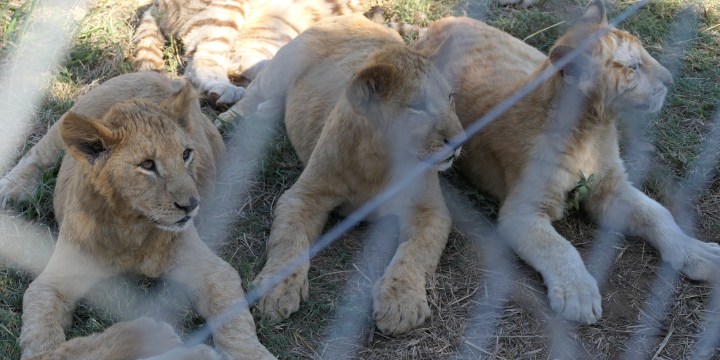
A new investigative report on SA’s lion farming industry comes to a damning conclusion: ‘This new intelligence gathered by brave sources confirms what was previously suspected – these well-established, legal operations are plugged secretly into unethical practices and an illicit international trade network.’
On Thursday, which also marked World Lion Day, World Animal Protection released an investigative report that highlighted how the South African lion farming industry not only continues to cause appalling suffering to big cats but also has ties to international crime syndicates.
The international NGO has called on the South African government to stand by its commitment to shut down the country’s commercial captive lion breeding industry for good.
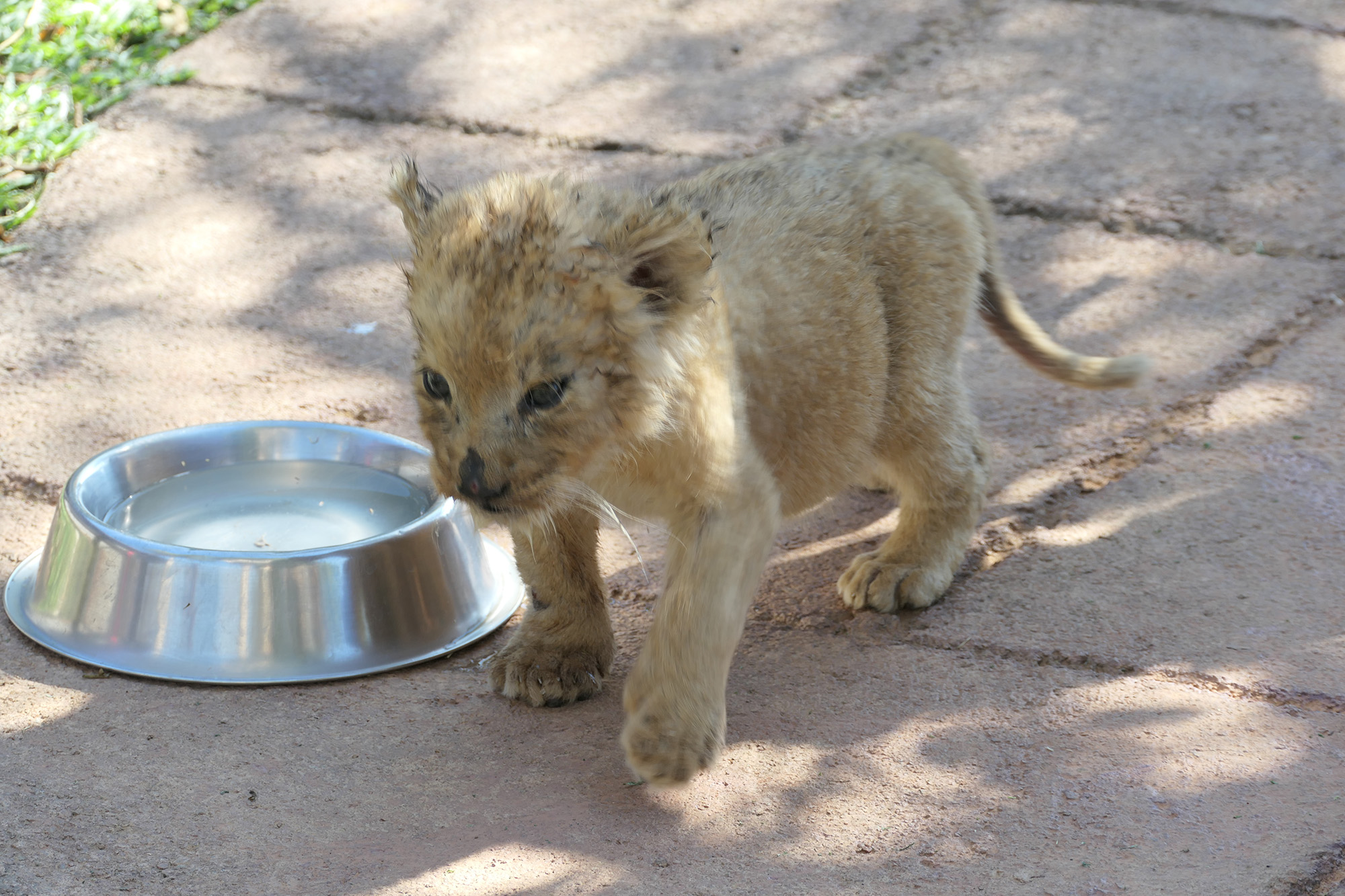
A cub of a few weeks old inside the interaction area, with high levels of noise, mixed with tiger cubs, and a group of children that were participating in the interaction moment. Groups of children interact with the cubs for a fee. Cubs that looked weak and with sick appearances were in direct contact with visitors, generating concern in terms of public safety. Used in lion tourism/farm exploitation in South Africa. (Photo: World Animal Protection / Roberto Vieto)
Although the Department of Forestry, Fisheries and the Environment (DFFE) effectively stopped the legal export of lion bones (intended for use as traditional Asian medicine) in 2019, commercial captive breeding and canned hunting of lions in South Africa is currently still legal – with an estimated 8,000 to 12,000 lions and other big cats, including tigers, still bred and kept in captivity in more than 350 facilities around the country.
“Even as experienced researchers, we were deeply disturbed by the cruel practices taking place. It is sickening to see these majestic mammals reduced to mere commodities kept in merciless conditions,” said Dr Neil D’Cruze, global head of wildlife research at World Animal Protection, after receiving evidence from anonymous sources on unregulated “off-grid” lion farms with “unimaginable” animal suffering.
“Lion cruelty has long been identified as a major problem on farms that are open to the public,” said D’Cruze who is also a wildlife biologist with expertise in conservation, illegal wildlife trade and animal welfare.
“But on some of these ‘off-grid’ facilities, the animal abuse is soaring to new heights of concern.”
‘Unimaginable’ findings
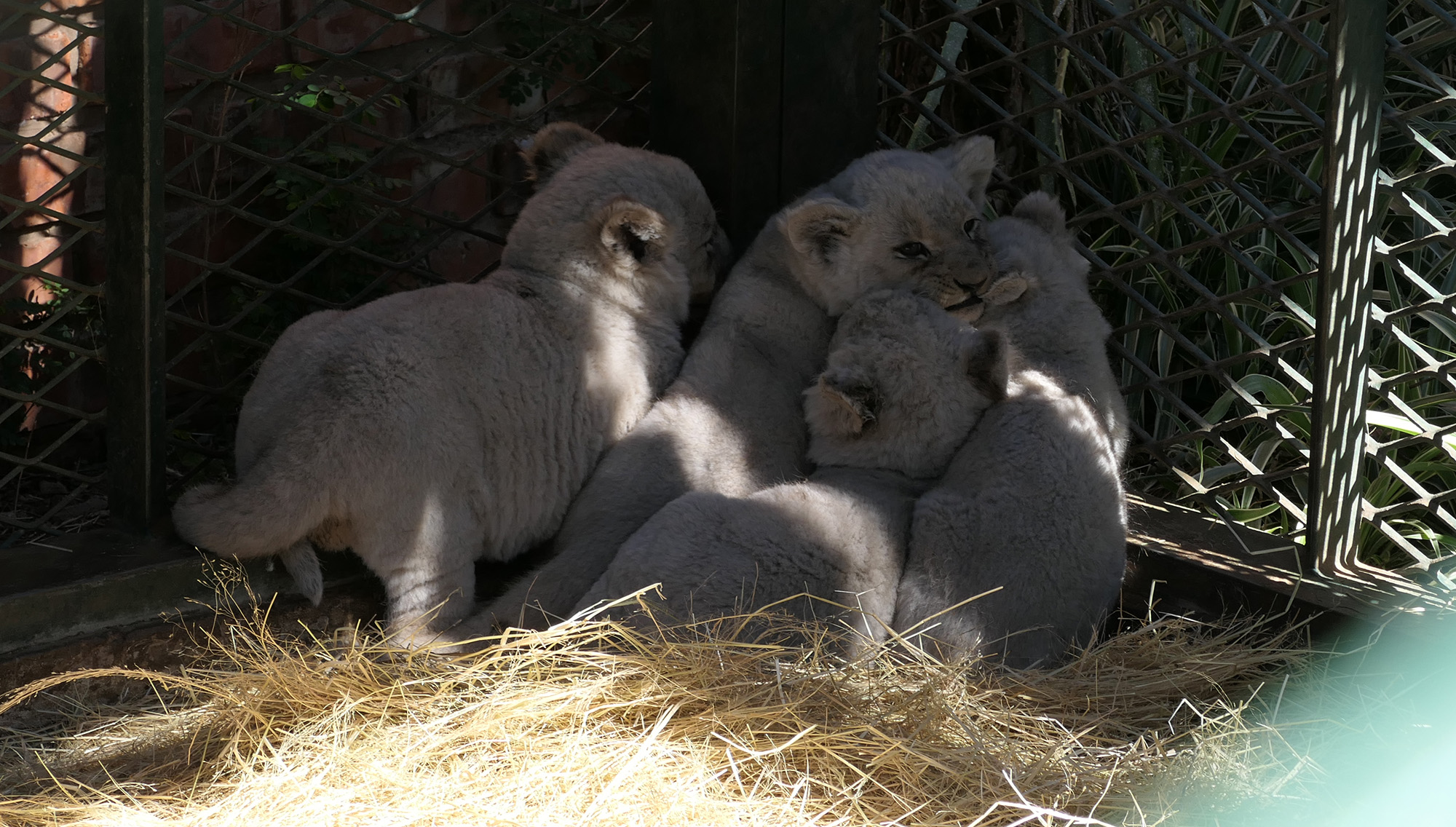
A group of lion cubs, recently separated from their mothers, kept in a temporary cage, next to the cub interaction area. Cubs looked distressed and fearful. Used in lion tourism/farm exploitation in South Africa. (Photo: World Animal Protection / Roberto Vieto)
The NGO received evidence from two employees, who remain anonymous for their protection, who work at “off-grid” lion farms that are not open to the public, revealing the terrible conditions lions face during both captivity and slaughter, and how some of these types of facilities use South Africa’s legal lion breeding and captive hunting industry to cover up their involvement in the illegal international export of lion bones for use as traditional medicine.
“Lions are being kept in decrepit, barren enclosures, littered with old food carcasses stripped bare, chicken feathers, and piles of faeces that have been left lying there for weeks,” said D’Cruze.
In this industry, lions are bred for commercial purposes, including interactive cub “petting” tourism, so-called “canned” hunting, live exports, and the supply of body parts such as bones for use in traditional Asian medicine.
“In some cases, lions are even effectively being starved to save the farm owners money – which can result in instances of lion cannibalism. We were told that on one occasion, three desperately hungry female lions attacked and ate another adult lion at the facility,” said D’Cruze.
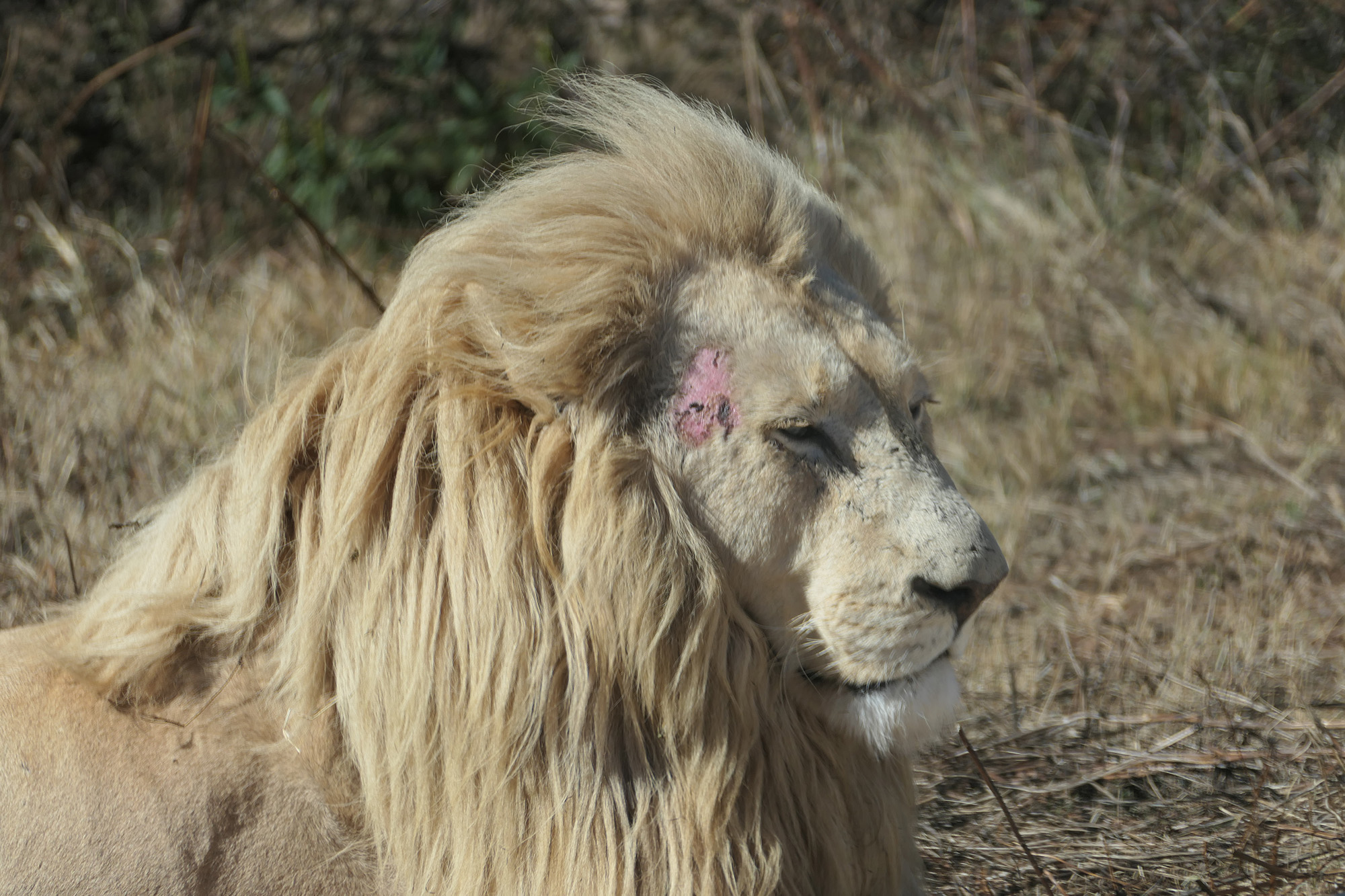
An adult male white lion with a skin lesion with a possible complication with scabies, kept at a captive safari-type open enclosure, used in lion tourism/farm exploitation in South Africa. (Photo: World Animal Protection / Roberto Vieto)
The evidence World Animal Protection gathered includes:
- Lions kept in decrepit, filthy and barren enclosures littered with old food carcasses and piles of faeces;
- Lions and tigers slaughtered and processed on-site, with up to four animals processed by each labourer per day at both facilities during busy periods;
- Lions severely neglected and starved to save farm owners money – resulting in instances of lion cannibalism, including how desperately hungry lions attacked and ate another adult lion at a facility;
- Inhumane and unhygienic slaughter processes, with lions’ entrails spilled over the floor, and skin peeled back from their paws and skulls;
- Low-paid farm staff working in unsafe conditions without protective gear and at high risk of suffering an accident or being infected with zoonotic diseases.
World Animal Protection and Blood Lions have handed their findings to the South African government.
D’Cruze continued: “This new intelligence gathered by brave sources confirms what was previously suspected – these well-established legal operations are plugged secretly into unethical practices and an illicit international trade network.”
According to unnamed sources, staff and their families are routinely threatened with violence to maintain their silence about the cruelty and illegal bone trade.
In 2021, some progress was made when DFFE Minister Barbara Creecy led a High-Level Panel report to announce that all commercial exploitation of captive lions would be phased out, and a process would be established to shut down facilities for good.
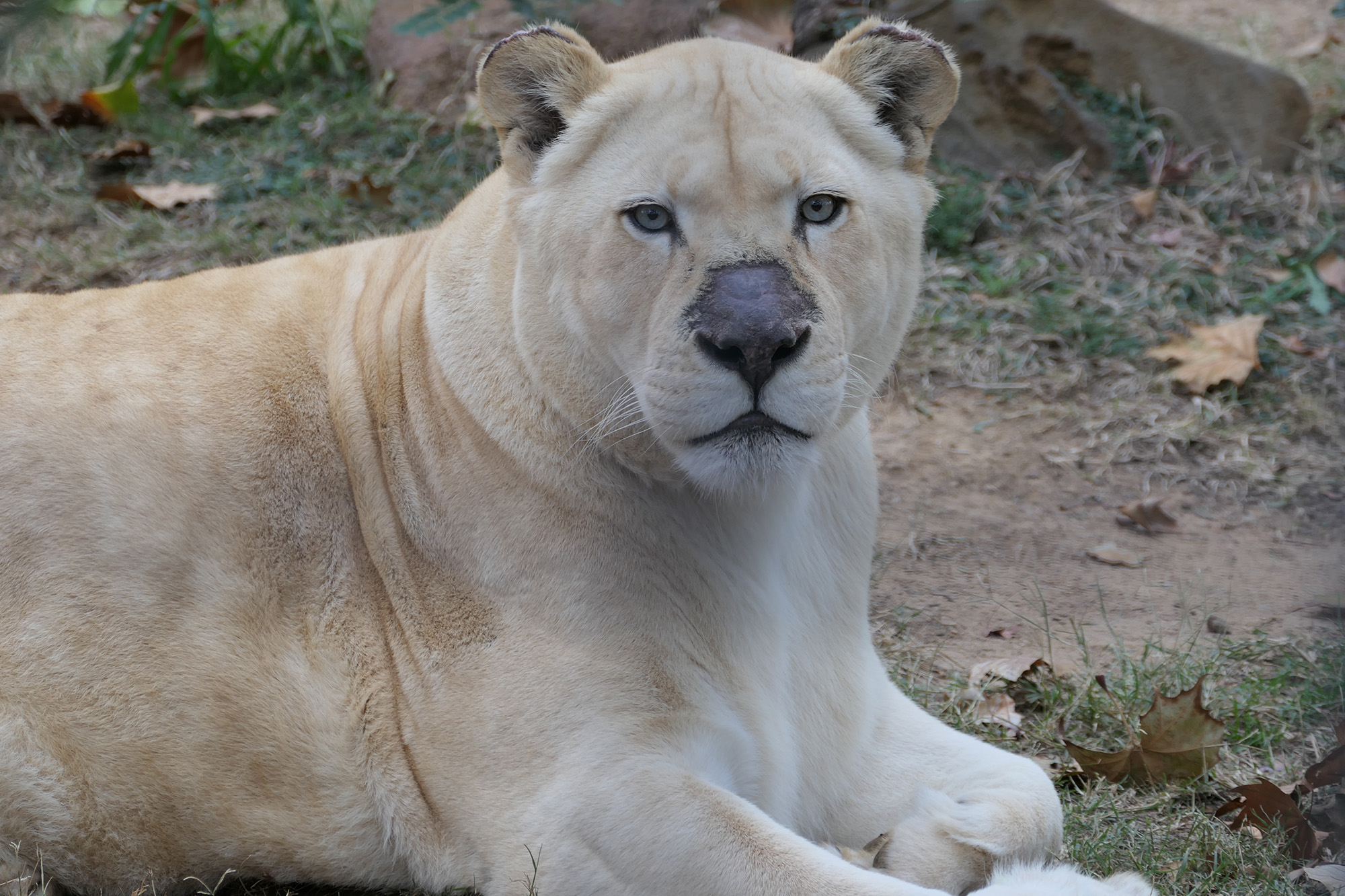
An adult white female lion, with evident obesity and a skin lesion compatible with an ectoparasite infection (mange) in the frontal portion of the nose. Ears also present lesions similar to the ones caused by fly bites. Individuals kept in a conventional zoo-type enclosure used in lion tourism/farm exploitation in South Africa. (Photo: World Animal Protection / Roberto Vieto)
But in late 2022, a ministerial task team was asked to “develop and implement a voluntary exit strategy and pathways for captive lion facilities” – the use of the term “voluntary” raised concerns.
“A voluntary phase-out of the industry alone won’t be enough to halt the commercial exploitation of lions in South Africa,” said D’Cruze.
“The legal breeding and canned hunting of lions is providing a cover under which the illegal bone trade continues to operate. We were told that some off-grid lion farms use various tactics like security cameras, patrols and messaging apps to avoid detection during routine inspections.”
Calling on the government (again)
Dr Louise de Waal, director and campaign manager of Blood Lions, said, “We urge the South African government to make good on their 2021 decision and bring a mandatory time-bound end to the commercial captive lion industry, which will make detecting and preventing the illegal trade easier at the same time.”
But this is not the first time alarm bells have been rung on animal cruelty on lion farms.
Daily Maverick previously reported that in a briefing to Parliament’s Environment Portfolio Committee on captive lions in January this year, NSPCA senior inspector Douglas Wolhuter revealed “sickening” levels of lion cruelty, which was met by concern from the committee.
Read more in Daily Maverick: Grisly report on captive lions shocks Parliament
But that was more than six months ago and came after countless other parliamentary and high-level gatherings over several years, as well as a draft White Paper, draft prohibition, a draft policy position and a newly appointed task team.
“None of these has resulted in the prohibition of the hunting of captive-bred lions and export of their parts, the prevention of cub petting by tourists, or the prohibition of new breeding,” reported Don Pinnock for Daily Maverick.
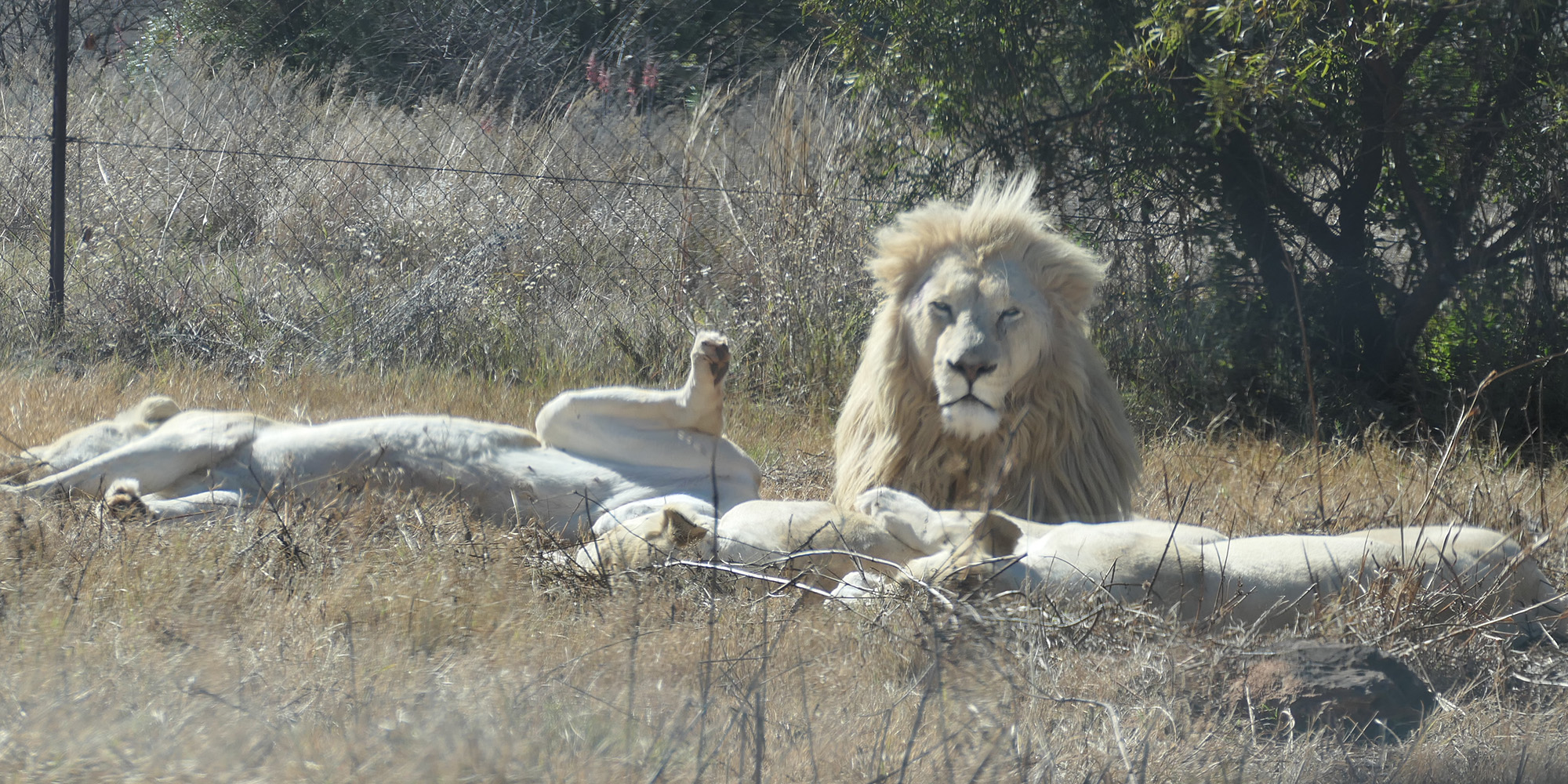
A group of white adult lions kept at a safari-type open enclosure, used in lion tourism/farm exploitation in South Africa. (Photo: World Animal Protection / Roberto Vieto)
According to previous reports in Daily Maverick, Minister Creecy cautioned at the time that while her department supported the recommendations of the High-Level Panel on the closure of breeding operations, it had to follow due process and that her task team “was not required to inspect every facility, but only those who indicated they wished to exit voluntarily”.
World Animal Protection said this lack of enforcement of regulations in the industry “left a legal grey area, leaving some farms to operate what on the surface appear to be legitimate captive lion breeding and ‘canned’ trophy hunting businesses – but which in reality supply the illegal international big cat bone trade facilitated by organised crime gangs.” DM
World Animal Protection and Blood Lions are encouraging South African citizens to add their voices and call on the South African government to phase out the captive lion breeding industry by registering their support here.






















 Become an Insider
Become an Insider
Comments - Please login in order to comment.